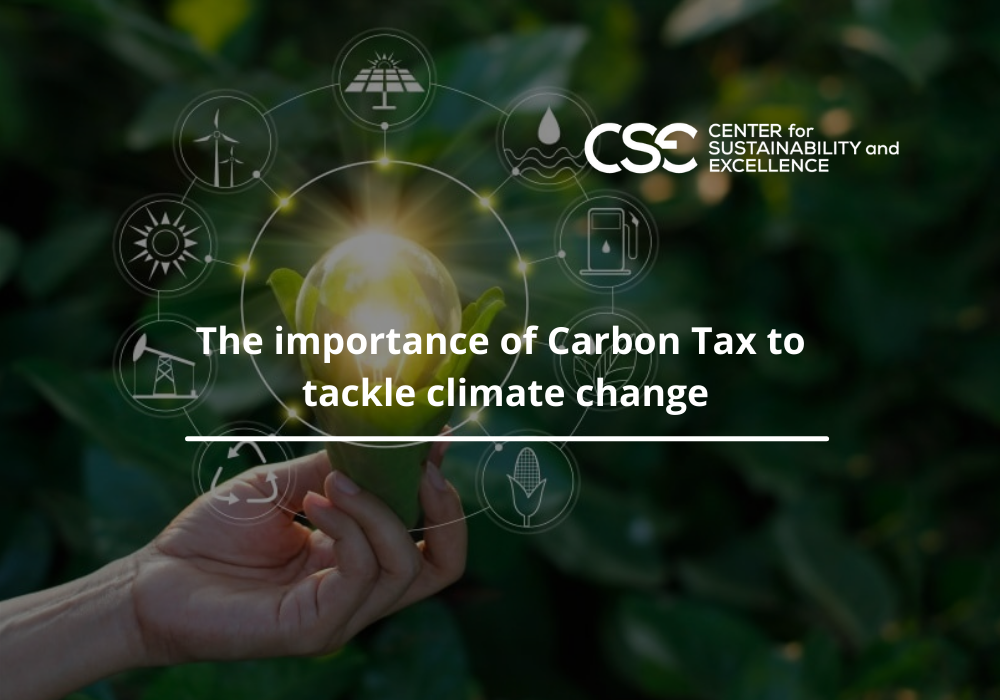By Nikos Avlonas, President and Founder of CSE
Climate change poses a serious threat and it is acknowledged that vulnerable communities will bear the most consequences. To tackle the threat, carbon emissions should decrease.
Carbon tax discourages the use of fossil fuels as it is a fee imposed by a government on any company that burns fossil fuels. Each government can determine the external cost for each ton of greenhouse gas emission.
Carbon tax policies are usually preferred by economists as it is easier to correlate the emissions with their cost and it is one of the most cost-effective ways to reduce them. However, there is an important issue rising: the impact they may have on lower or middle income taxpayers. This is why a carbon tax must be introduced gradually in order to give them time to make that shift.
A number of countries, regions and local governments around the world have already implemented a carbon tax, including EU, Canada and Sweden. Moreover, several U.S. states have carbon pricing programs, especially California.
According to the World Bank, 40 countries and 20 municipalities use either carbon taxes or carbon emissions trading and a total of 88 countries intend to use a carbon tax to meet their Paris Agreement goals, representing 56% of global emissions.
Finland was the world’s first country to introduce a carbon tax in 1990. Right now, Sweden has the highest carbon tax rate at €108.81 (US $119) per tonne of carbon emissions. Switzerland and Liechtenstein follow with €90.53 (US $99). On the other hand, the lowest carbon tax rate is found in Poland with €0.09 (US $0.10).
On April 1, Canada’s carbon price increased by $10 per tonne each year until it reaches $50 per tonne in 2022. After the carbon price reaches these levels, there will be another rise by $15 per year until it maxes out at $170 per tonne of carbon pollution in 2030. The decision was made over the 2018 Greenhouse Gas Pricing Act, which is a national framework to mitigate climate change through the application of pricing mechanisms to a broad set of greenhouse gas emission sources.
Even if the number of businesses that commit to becoming carbon neutral is increasing, they still must follow the rapidly changing policy frameworks.
Carbon tax is here and will stay for a long time until we reduce significantly the Carbon Emissions before is too late!
Ηow CSE can help
CSE is a leading ESG Consulting firm with sector-based integrated consulting services on Sustainability (ESG) from ESG Reporting and Ratings, Certification & External Assurance, to Impact Assessment and Strategic Planning. For more than 14 years, CSE helps FORTUNE 500 and other organizations around the globe improve their ESG Ratings and maximize their social, economic and environmental impact.
To guide you securely into building or optimizing your Sustainability (ESG) strategy, CSE can provide coaching and practical tools.







